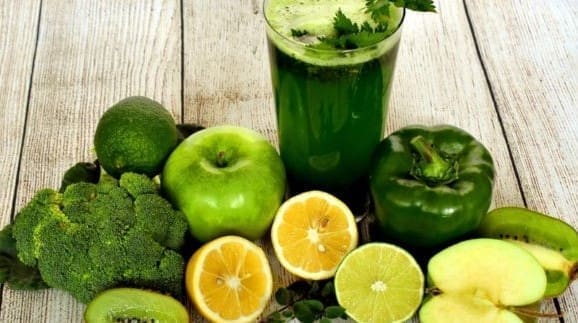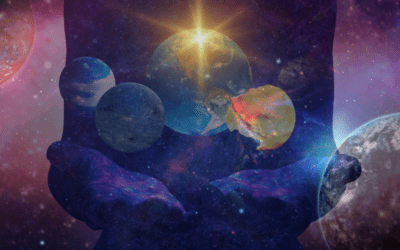As summer arrives, outdoor gatherings, grilling and sweet times settle in, we bring you this just in the nick of time. Once again, this month, share this nutrition based-blog to help you consider your optimal health and vitality. We are pleased to share an informative blog from Ross D is a lifestyle blogger who aspires to make it big in the writing space. She is currently working as a content strategist.
All say, “Good Food Means Good Mood.”
Do you believe it? Till a few decades back, even science didn’t acknowledge the complete relation between food and mood. Thanks to it, now it does! Food is the chief supplier of nutrients the human body seeks to perform optimally. If one doesn’t eat quality food, of course, the outcome would be unfavorable.
When we talk about essential nutrients, it includes all macronutrients, micronutrients, and other phytochemicals. All these elements ensure a healthy body and keep brain function relaxed. A balanced diet and other health supplements also help the body get additional strength and increase physical abilities. People even buy dianabol canada for performance-enhancing purposes.
So it’s pretty clear that there is some science behind nutrition, health, and relaxation, and we will learn about it in this guide. Let’s know the human body first, learn about nutrition, and then explore how diet affects our mood.
Let’s do it the same way!
Knowing The Human Body
- The brain – is the central organ of the body. It’s always ‘on.’ It’s the brain cognition that commands the body to function, controls the thoughts, and regulates breathing & heartbeats. The brain doesn’t stop performing even during sleep. This means it needs fuel to work, and food is the best fuel for the brain.
- The heart – is the reason why you’re alive. The moment it stops beating, you’re dead! Like the brain, the heart also works 24*7 even when you’re asleep. Its chief function is to circulate blood throughout the body, make and remove blood cells, and regulate other body processes.
- The abdomen – is the home for digesting all the food you intake. The gastrointestinal tract in your stomach is responsible for producing 95% of serotonin itself in the gut. Serotonin – is a chemical that helps repair moods, govern sleep and appetite, and restrain pain. The intestines in your stomach absorb all the necessary nutrients from the food and deliver them to the different body parts.
- The lungs – are an inseparable part of the respiratory system. They filter the inhaled air and supply the extracted oxygen to the blood.
- The liver – eliminates toxic cells from the blood. Plus, it helps process the nutrients absorbed by the intestines before delivering them to the body parts.
- The kidneys – are the body filters. Not only do they refine blood waste, but they also remove unwanted fluids out of the body.
Knowing The Nutrition
- Macronutrients – includes proteins, carbohydrates, and fats. Carbohydrate provides energy to the body. Food items like rice, potatoes, and root fruits are the best source of carbohydrates. While carbohydrate is energy-provider, protein and fat are block builders. The former generates amino acids needed for the growth of cells and bones. However, the latter structures cells and create cushion-like membranes to prevent them from damage.
- Micronutrients – includes vitamins and minerals. When we talk about overall metabolism and neurological functions, vitamins and minerals play a pivotal role. Whether it’s a blurred vision or healing wounds, Vitamin A & C comes to the rescue. From relaxing muscles, blood vessels, blocking cramps to blood circulation in the body, minerals like calcium, magnesium, and iron take care of all.
- Phytochemicals – don’t supply calories. Instead, they can be called protectors of the body. These chemicals are detected in fruits, vegetables, grains, beans, and other plants that help prevent cells from damage.
The Science Behind Nutrition, Health, And Relaxation
Now you know enough about the different body organs, their functions, and types of nutrients. But the real question is, how are they interlinked? Several chemicals in your body are responsible for a good or bad mood. For example, serotonin is a neurotransmitter chemical in your body. It ensures the messaging between your nerve cells and body. Thanks to the adequate levels of serotonin that your sleep cycle is regular, your appetite is limited, and you are feeling happy. A reduction in serotonin can lead to depression, decreased sexual desire, memory loss, and sweet food cravings.
Like serotonin, dopamine is another neurotransmitter chemical in the body accountable for feeling pleasure, satisfaction, and motivation. L-Tyrosine is a protein that helps create enough dopamine for the body. Eating protein-enriched foods can work well for dopamine balance and not letting you down. Cutting junk foods, caffeine, sugar, and daily exercising can help you boost dopamine levels.
Oh! Oh! Adrenaline Rush – that’s what you say when you get rapid sweats or breathing, increased heartbeat, feeling anxious, endurance, and a drop in sensing pain. While serotonin and dopamine are needed to make you feel satisfied, adrenaline is needed for some excitement! This chemical is required in the body to feel the thrill while you are skydiving or adventuring amid sharks!
The last chemical equally crucial as the above three to make you feel emotions is oxytocin. Typically, oxytocin is referred to as the ‘love hormone.’ It boosts feelings like trust, empathy, care, and relationship bondings in humans. Reduced oxytocin in you can make you feel depressed and uncanny. If you hug someone, spend time doing things you love, meditate, or focus on yourself, you increase oxytocin levels. It might help you cut anger, depression, and foul mood out of your life.
Conclusion
Thus, it’s evident that there’s a reason to eat nutritious food, have sound health, and feel relaxed. Different food elements trigger disparate hormones in the body and cause feelings. It highly depends on what you eat and how you feel later. The next time you think it doesn’t matter what you eat, think twice because it will either make or break your mood!





